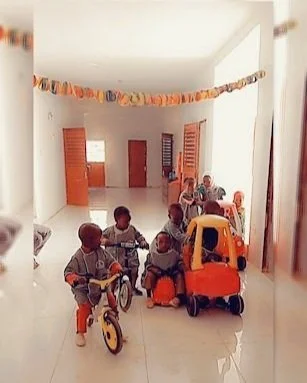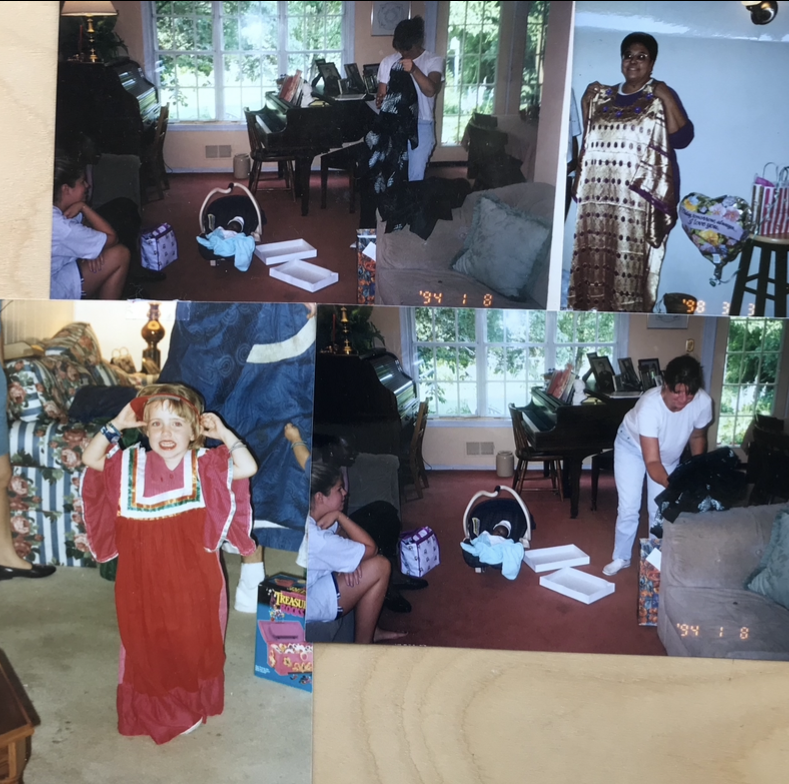Revolutionizing the Future green Industrial Development
Future Green Education and Industrial Development
Education
Skill development through education and job training will be driven by technology transfer, training initiatives, and the rising demand for green industry skills. The GDF initiative will serve as a foundation for comprehensive technology transfer, enabling green education, technical access, workforce training, income generation, and sustainability for workers in green industrial development.
In line with trends in the developed world, green industries will become a cornerstone for addressing environmental challenges, combating climate change, and fostering global socio-economic development. This approach will focus on advancing green education, skill development, green AI, computer literacy, access to green credit, and sustainable industrial growth—all tailored to meet the needs of the global environment while empowering economic progress.
Skill Development
Donate
Your financial support is vital to our mission. Donations help us provide scholarships, fund community programs, and advance social justice initiatives.
Volunteer
Join us in making a difference! Whether it’s a few hours a week or a few days a month, your time and energy are invaluable to our programs and events.
Partner
We value collaboration. Partner with us to create lasting impact—whether you're a business, organization, or individual who shares our vision.
Employment of New Technologies
The adoption of new technologies, products, and services will establish a transformative paradigm. The integration of state-of-the-art hydrogen fuel cell technologies will create significant opportunities for market access, leveraging solar energy and hydrogen fuel cell production for power plants and vehicles.
For instance, the potential of AI, a new green education curriculum, and green industries—such as hydrogen fuel cell production and power plants—is immense. With the global expansion of solar, hydrogen, and other green energy developments, initiatives like GDF can realistically drive market growth across all sectors.
By incorporating these advancements into early-stage education curriculums, technology transfer, and training processes, GDF will pave the way for a greener future. With effective delivery mechanisms, GDF can unlock vast opportunities in green education and industries, aligning with the scale of the global market and donor support.
Our vision
We champion a new era of philanthropy, where innovative strategies pave the way for impactful change. Our mission is to redefine community support with pioneering initiatives that inspire and elevate the world's most pressing causes.
Agriculture modernization education programs aim to equip farmers with the knowledge, skills, and technology needed to increase their productivity, profitability, and sustainability. These programs focus on a range of topics, from crop management and soil health to market access and business development. Here are some examples of agriculture modernization education programs:
Sustainable Agriculture Education program: This program provides agricultural education and training to high school students through hands-on learning experiences, such as managing a small farm. The program covers topics such as sustainable agriculture practices, agribusiness management, and marketing.
Farm-to-School program: This program connects local farmers with schools to provide fresh, locally-grown produce for school meals. The program also includes classroom education on agriculture, nutrition, and environmental sustainability.
Farmer Field Schools: These schools offer a practical approach to agriculture education, with farmers learning through experience and observation. The program covers topics such as crop management, soil health, pest management, and market access.
Women in Agriculture program: This program focuses on empowering women farmers by providing training on topics such as business management, marketing, and financial literacy. The program aims to improve gender equity in agriculture and increase women's access to resources and markets.
Extension Services: These services provide farmers with access to research-based information on agriculture practices and technologies. Extension agents work directly with farmers to provide education and support, such as soil testing, crop monitoring, and pest management.
These are just a few examples of agriculture modernization education programs. By providing farmers with the tools and knowledge they need to succeed, these programs can help to improve food security, increase income and employment opportunities, and promote sustainable agriculture practices.
A rural development curriculum is a program designed to equip individuals with the knowledge, skills, and attitudes necessary to promote and support the economic, social, and environmental well-being of rural communities. The curriculum may cover a range of topics, including community development, entrepreneurship, agriculture, natural resource management, and social justice. Here are some examples of topics that could be covered in a rural development curriculum:
Community Development: This topic covers the principles and practices of community development, including community organizing, needs assessment, planning, and implementation of development programs. It also includes topics such as community leadership and governance, civic engagement, and community-based participatory research.
Entrepreneurship: This topic covers the skills and knowledge needed to start and manage a business in a rural context. It includes topics such as business planning, marketing, financial management, and risk management. It also covers the role of entrepreneurship in rural economic development and strategies for supporting rural entrepreneurs.
Agriculture: This topic covers the principles and practices of sustainable agriculture, including crop and livestock management, soil health, and pest management. It also covers topics such as agricultural policy, farm-to-table initiatives, and the role of agriculture in rural economic development, and high-level trade.
Natural Resource Management: This topic covers the principles and practices of natural resource management, including conservation, restoration, and sustainable use of natural resources such as forests, water, and wildlife. It also covers topics such as climate change, ecosystem services, and the role of natural resource management in rural economic development.
Social Justice: This topic covers the principles and practices of social justice, including human rights, equity, and inclusion. It also covers topics such as poverty, inequality, and discrimination, and strategies for promoting education, development and social justice in communities. These are just a few examples of topics that could be covered in a rural development curriculum. By providing individuals with the knowledge and skills needed to promote rural development, such a curriculum can help to build stronger, more resilient, and more sustainable rural communities.
Public Education on behalf of developing nations
Public education on behalf of developing nations is a vital component of promoting sustainable and equitable development. Such education can take many forms, including awareness campaigns, community education programs, and policy advocacy. Here are some examples of public education initiatives that can benefit developing nations:
Literacy programs: Illiteracy is a major barrier to development, particularly in developing nations. Literacy programs can help individuals acquire the reading, writing, and basic numeracy skills they need to access education, employment, and civic participation.
Health education programs: Health education programs can help individuals and communities learn about disease prevention, hygiene practices, reproductive health, and nutrition. These programs can help to reduce the incidence of preventable diseases and improve overall health outcomes.
Environmental education programs: Environmental education programs can help individuals and communities learn about sustainable resource use, conservation, and environmental protection. These programs can help to promote environmentally sustainable development practices and reduce the negative impacts of environmental degradation on communities.
Policy advocacy: Public education efforts can also focus on advocacy for policy changes that promote sustainable development. This may involve raising awareness about issues such as poverty, inequality, and environmental degradation, and advocating for policies that address these issues.
Technology education: Technology education programs can help individuals and communities learn about the latest technology trends and how they can be applied to promote sustainable development. This may include training on renewable energy technologies, e-commerce, and digital literacy.
These are just a few examples of public education initiatives that can benefit developed and developing nations. By providing individuals with the knowledge and skills they need to participate in their communities and promote sustainable development, such initiatives can help to reduce poverty, improve health outcomes, and build more resilient and sustainable communities worldwide.
Historic Testimonials
March 13, 1997
To Whom It May Concern
From: Ronald S. Chamberlain, MD, MPA
Department of Surgery
George Washington University Medical Center
Subject: Recommendation for Cheikh Omar Diouf
Dear Sir/Madam,
It is my great pleasure to write this letter of recommendation and introduction for Mr. Cheikh Omar Diouf. “Omar,” as I call him, is truly a remarkable individual.
Two years ago, I decided to establish a nonprofit foundation designed to organize short-term humanitarian missions to Africa. Although I had served as a missionary in Africa before, organizing such a mission – fundraising, establishing contacts, and managing the endless details – was entirely new territory for me. For our first trip, we chose Senegal, West Africa, as our destination for several reasons.
One of my early efforts was to publicize the mission to raise public awareness and financial support. A local 6 PM news broadcast aired a special segment about the trip, generating many calls from individuals offering help. However, only a few followed through on their promises. One outstanding exception was Mr. Cheikh Omar Diouf.
Omar called me one Friday afternoon, asking if he could help in any way with the trip. He explained that he was originally from Senegal, had lived there for years during his early education, and knew many people in the country who could assist us. Though initially skeptical, I agreed to meet him for dinner. What a dinner it was! Omar’s enthusiasm, intelligence, maturity, and creativity were overwhelming.
Before our first meeting, Omar had already conducted extensive research, spoken with contacts in Senegal, and prepared plans and data about healthcare in the country. He had connected with prominent Senegalese figures, reached out to the Senegalese ambassador, and arranged a meeting for the two of us. Omar also suggested cultural training and language classes before our departure. He coordinated accommodations, worked late nights packing supplies, drafting letters, and even contacted Senegalese media in both New York and Dakar to ensure wide coverage of our mission.
In short, Omar turned the trip from a dream into reality.
I firmly believe that, given the opportunity, Omar can succeed at any challenge he faces. His natural instincts, understanding of others, reflective wisdom, and extraordinary humility make him a joy to know and work with. It is rare to encounter someone with such boundless talent paired with a selfless spirit. I urge you to give Mr. Diouf your utmost consideration and provide him with the opportunity to share his incredible gifts with you.
I offer my highest recommendation for Mr. Diouf as one of the most exceptional individuals I have ever had the privilege to know. Should you need further information, please do not hesitate to contact me.
Sincerely,
Ronald S. Chamberlain, MD, MPA
It all begins with an idea.
Maybe you want to turn a hobby into something more. Maybe you want to launch a business.
Contact Us
Interested in working together? Fill out some info and we will be in touch shortly. We can’t wait to hear from you!






